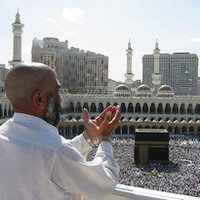When Barack Obama became the new U.S. president, one of the primary concerns for many observers was restoring America's image in the eyes of the world. During the eight years of the Bush administration, the favorability ratings of the United States had declined dramatically. Nowhere was the U.S. image more negatively viewed than among publics in Muslim-majority countries. Anti-Americanism had intensified in the Arab world, and spread from Nigeria in West Africa to Indonesia in the Far East. Despite the administration's vigorous efforts to win Muslim hearts and minds through innovative public diplomacy, when former president Bush left office, U.S. favorability ratings were at all-time lows. Although the Obama administration is only just out of the political starting gate, observers are already noting a distinct change in the prominence and tone of U.S. public diplomacy, specifically with respect to the Muslim world. Some suggest President Obama by his very person and style represents a game changer for U.S. public diplomacy in the Islamic world. He is the son of a Muslim father from Kenya, carries the distinctly Muslim middle name of Hussein and attended school in Indonesia, the most populous Islamic country. In his inaugural address, he spoke directly to the Muslim world, raising the promise of "mutual interests and mutual respect." During his first week in office, he made a point of granting his first television interview in the White House with an Arab satellite channel and appointed two special envoys -- one to handle the Palestinian-Israeli conflict and another for the Afghanistan and Pakistan area. His new secretary of state, Hillary Clinton, included Indonesia on her first international trip. Shortly after her return from Asia, she headed back out to the Middle East and the politics of the Palestinian-Israeli conflict.
Obama, U.S. Public Diplomacy and the Islamic World

